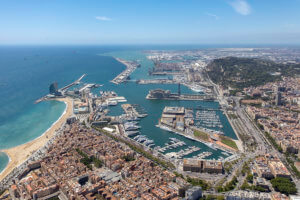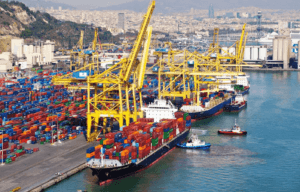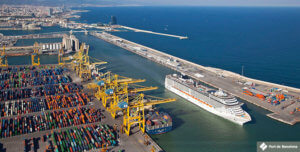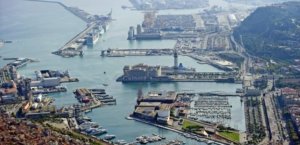MED MOSAIC
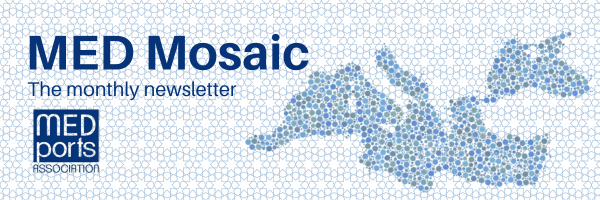
Issue 10
HOT SEAT:
Interview with Santiago Garcia-Milà – Deputy General Manager Port of Barcelona and Former IAPH and ESPO President
The Impact of Port Cooperation and Exchange in International Organizations
- Speaking of the importance of international organizations in the port sector, you have been President of the World Ports Organization, IAPH and the European Sea Ports Organization, ESPO. Can you tell us what did you get from this experience?
This has been one of the best experiences of my professional career. Being able to chair the two organizations was a unique opportunity to get acquainted with the port realities all over the world and become friends with port executives from the five continents. From a personal perspective, it was a truly enriching experience. More importantly however, I was to be able to represent the port sector in important international developments and to make an impact in the development of new legislation both on a global and regional (European) levels.
- Following your experience in IAPH and ESPO, how do you see the future of MEDPorts?
The Mediterranean is and will be one of the main hubs of global trade and maritime transport in the coming decades. Despite the realities on the four shores of the Mediterranean being very different, we all share common challenges and threats as we have seen now with the crisis in the Red Sea. Accordingly, having an organization gathering all Mediterranean ports in order to represent them in international fora, exchange experiences, share training needs and jointly promote the region globally is very important.
- Currently, you are the Deputy General Manager of the port of Barcelona in charge of Strategy and Innovation, what are the main challenges your port is facing in these areas??
We have witnessed 5 years of disruptions in our sector, such as we have never seen before, at least not within this century and during the last decade of the XX century. They do not seem to end. We need to be prepared and draft our strategies by taking this into account. We do not know what crises lie ahead of us. Will it come from AI? Will it come from a new war? Will it come from climate change? Who knows? Innovation is key in order to be prepared for these multiple crises. We must take advantage of the new technologies available to plan our port’s future and make a resilient port that is able to respond to unexpected changes.
- what are the successes of your past chairmanship in IAPH and ESPO you are most proud of?
It is difficult to say, basically because all of them were the result of the work of a lot of people. I have been very lucky to be able to count on extremely efficient teams. Having said that, I am extremely proud of the reform process we started in IAPH that resulted in a new managerial structure and working methods in the organization. I am also particularly proud of the work ESPO did with the European institutions in order to issue new European legislation that would benefit and not hinder port development in Europe. I am referring here, for instance, to the work we did when it comes the Trans-European Transport Networks or what is commonly known as the European Port Regulation.
